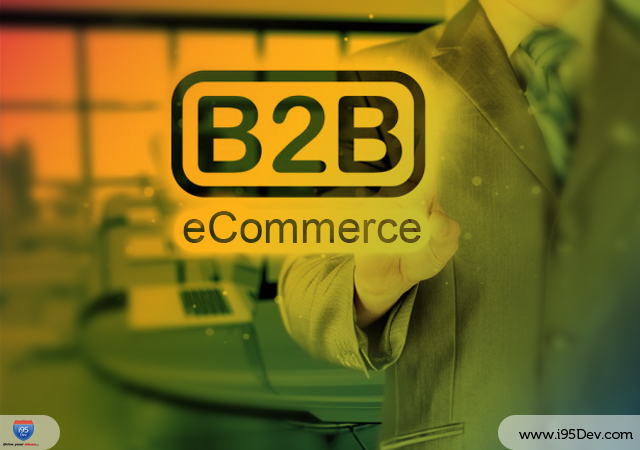B2B eCommerce is one of the most promising markets with a lot of untapped potential. Thanks to B2C eCommerce, eCommerce service providers and B2B businesses are all running to capture this market. For some this is calculated and well thought move to expand their reach and improve the bottom line, while for others the only driver is competition (because their competition is adopting it).
In this race, companies often misunderstand the reasons for adopting eCommerce and rush to adopt an eCommerce store not right for their B2B customers. For example, one of the most cited reasons for B2B eCommerce adoption is to provide the B2B customers the same shopping convenience and experience that a B2C customer today expects from a B2C eCommerce platform.
But, the needs of a B2B customer are very different from that of a B2C customer right from the way they consume information to way they shop and the eCommerce platform must accommodate these differences for it to be effective. Consider order placement for example – a typical B2C customer searches for a product, adds the product to cart and checkouts. On the other hand, a B2B customer might either reorder an earlier order (with different quantities) or create a new order altogether.
In either case, usually, a large number of products are present in a B2B order and the traditional B2C workflow might hamper the chances of conversions than improving them. Hence, it is important to for the B2B eCommerce store to provide features meeting their requirements or support customization to make it convenient for B2B customers to place orders. In our experience, the order placement process can be simplified in the following ways:
Repeat Orders (manual or scheduled)
In B2B commerce, repeat orders are very common and often the differentiating component between successful and unsuccessful businesses. Things are not very different online, and hence the B2B eCommerce store must make it absolutely convenient for B2B customers to repeat a previously placed order, with or without an option to modify the item quantity.
The B2B shopping experience can be taken to the next level by allowing the B2B customers to schedule recurring orders – ability to repeat the same order at every schedule interval. While this means convenience for customers, it is also beneficial for businesses because they no longer have to chase customers to place orders every time.
Saved Order Lists
Another way to provide the same convenience and functionality of repeat orders is through saved order lists. A saved order list makes it convenient for customers to create and save lists once, which can then be reused to place orders without entering a lot of information. One of the primary advantages of Saved Order Lists is that customers can create and save multiple lists and use them as desired.
Quick Order
Unlike repeat orders and saved order lists, where order placement is made easy by using something that already exists, quick order makes order placement convenient by making it easy to add products to cart. Quick order functionality allows B2B customers to quickly search for products (by name or SKU), update quantity and add multiple products to cart – all from a single screen. The functionality is often extended to show customers the price and inventory availability dynamically in the same screen to make the process more convenient.
Also Read – i95Dev’s Quick Order Module.
Import Orders
Traditionally, B2B customers are known to manage orders in excel sheets or other similar documents and for them to transition from that to an eCommerce store might seem like an uphill task. To make the transition smooth it would benefit the business to provide order import functionality. Using the order import functionality B2B customers can import orders from an existing document, in an agreed format, and proceed directly for checkout. This can give B2B customers time to transition from their existing process to the new improved process in a phased manner.
Custom Order Forms
Based on the industry, it is possible for businesses to need a custom order form where they show or take more information. Hence, the B2B eCommerce platform must allow businesses to customize the eCommerce store to accommodate these custom requirements. This can then be further customized to incorporate custom order workflows (fulfillment workflows) based on the company requirements.
For example, Lone Star Distribution’s customers were accustomed to email and excel for placing orders. To minimize resistance and improve adoption by their customers, Lone Star Distribution customized their order form to mimic the excel document. For more information read, Lone Star Distribution benefits from i95Dev Magento Dynamics NAV Integration




